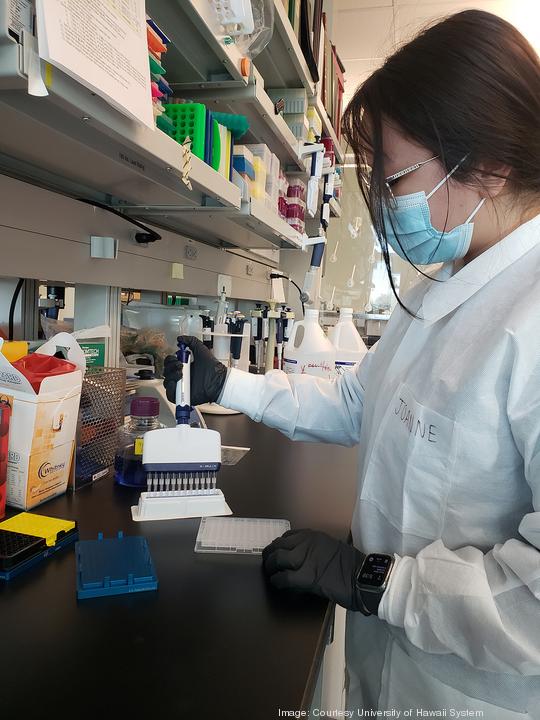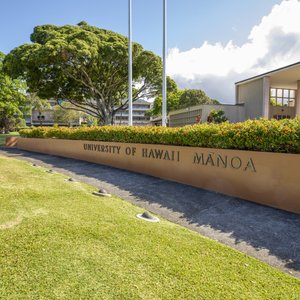
The University of Hawaii at Manoa has received a $2 million federal grant to expand its biomedical research program, UH officials announced on Friday.
The five-year contract — which comes from the National Institutes of Health — will enable UH faculty from the College of Natural Sciences, College of Tropical Agriculture and Human Resources, John A Burns School of Medicine, or JABSOM, Pacific Biosciences Research Center, UH Cancer Center and the School of Ocean and Earth Science and Technology to recruit and mentor a total of 30 undergraduate students in their junior and senior years from underrepresented backgrounds majoring in STEM programs in biomedical sciences.
The Maximizing Access to Research Careers, or MARC, grant from NIH will provide training in biological research to UH Manoa students from varying ethnic backgrounds including Native Hawaiians and other Pacific Islanders, Filipino students, and African American students, among others.
The grant will also benefit those from disadvantaged backgrounds, including those with low social-economic statuses and residents of rural Neighbor Islands.
Only 8.5% of PhD candidates in STEM-related programs at UH Manoa are from underrepresented backgrounds, according to the Chronicle of Higher Education. The MARC program seeks to increase their numbers in scientific research.
Vivek R. Nerurkar, professor and chair of the JABSOM Department of Tropical Medicine, Medical Microbiology and Pharmacology is principal investigator on the grant.
“The primary outcome measure will be the number of trainees graduating with BA/BS in four years who transition to research-intensive graduate programs,” Nerurkar said in a statement. “Thus, MARC@UHM seeks to increase Hawaii's under-represented citizens who transition to research careers, and bring their diverse cultural backgrounds, life experiences, ideas and interests to biomedical research.”



